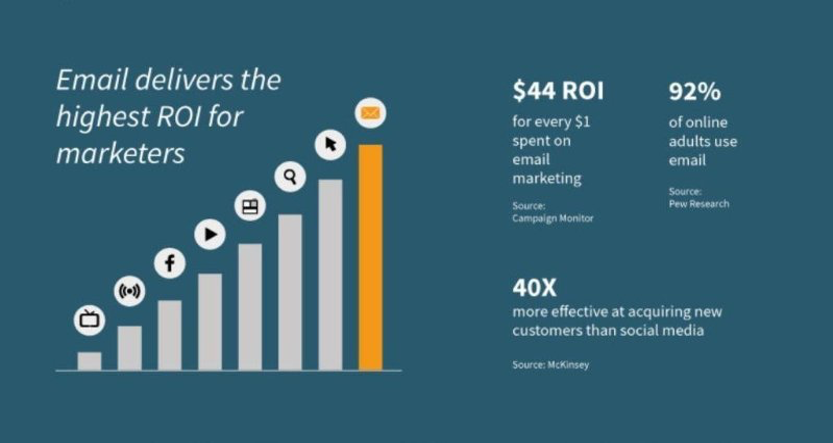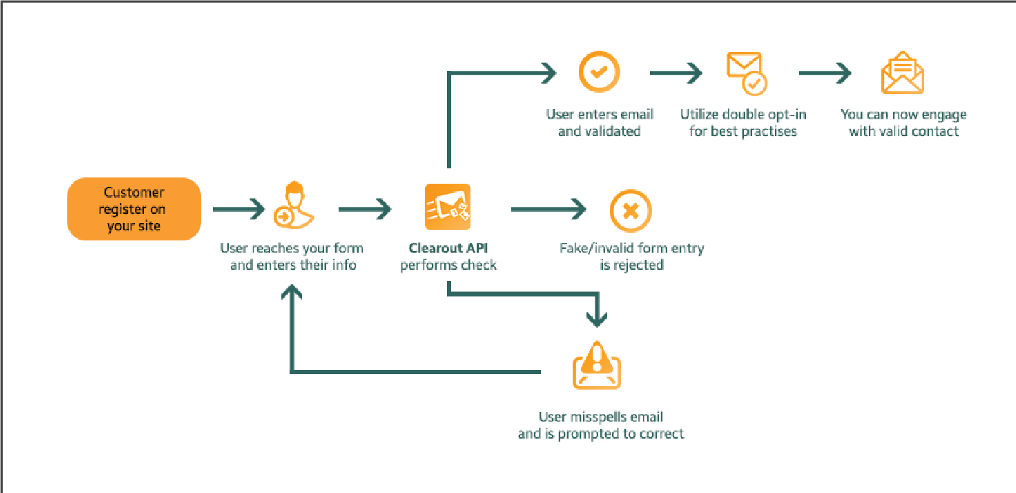Why You Should Use an Email Verifier

Why You Should Use an Email Verifier
Contributed ContentFor digital marketers, email is an essential way to communicate. Learn how an email verifier can help your marketing efforts and your bottom line.
Email verifiers are important, but many marketers are still confused if they should use an email verifier or not. Email verifiers help eliminate junk emails, and may be worthwhile for your business.
Consider the benefits email verification can bring your business.
9 Reasons to Use an Email Verifier
- Non-existent domains
- Job changes
- Change of email service providers (ESPs)
- Syntax errors
- Spam traps
- Catch-all addresses
- Improves ROI and saves money
- Wide variety of email verification options
- Prevents fraudulent entries
1. Non-Existent Domains
When a company is shut down or changes its domain, the email addresses related to the dead domain also become inactive. In such cases, email verifiers can help you eliminate email addresses that belong to a dead domain to reduce bounce rate.
2. Job Changes
People change their jobs over a period of time. In such cases, the older domain either gets unreachable or is redirected to the email address of another person. Email verification helps identify when people have left their jobs.
3. Change of Email Service Provider (ESPs)
Email service providers (ESPs) are another reason for an email ID being inactive.
This happens in cases where the concerned person changes their ESP or the email service provider shuts down due to some reason. In either of the cases, the email address cannot be reached and the email will bounce back.
4. Syntax Errors
Syntax errors are the mistakes made while registering email addresses. Examples include any spelling errors and inadvertent spaces included in the email address. Email syntax validation helps to identify those faulty email addresses.
5. Spam Traps
Spam traps or honeypot emails are email addresses that do not belong to any real person. They are created to catch spam emails. Such spam traps should be avoided since they might get you blacklisted, which will result in poor delivery and poor sender reputation.
6. Catch-All Addresses
This kind of email IDs are of utmost risk. Such email IDs are created to catch all email communications addresses to a wrong email ID associated with that domain. Emails never bounce from such email addresses and should be removed from your database.
Most of the businesses who are doing email marketing believe that only the new database should be verified. To eliminate the risk of getting blacklisted by an ESP or getting “spam trapped,” ensure that you validate even told databases on a regular basis.
7. Improves ROI and Saves Money
The biggest benefit of email validation is the amount of money your company can save through condensed marketing expenses. Every email sent represents money spent, so each marketing message that travels to non-existent or inaccurate email addresses equals money down the drain.

Think of it this way: Users engage with your site across multiple forms or pages, including “registration,” “contact us,” “order,” and “feedback” pages.
With a properly validated and accurate list, your marketing campaigns should report an overall higher return on investment (ROI) for your efforts. After all, your campaign marketing statistics will no longer come back with lower than expected scores.
Hopefully, you’ll begin to see potentially significant results from your emailing efforts, and those results can lead to more money directed towards future email marketing campaigns.
8. Wide Variety of Email Verification Options
Now once you have established if an email verifier is required for your business, you should consider the wide variety of email verification options. Consider the following features in mind before opting for a verifier:
- Scalability: You should ensure that the product you select is as scalable as you need it to be. The tool should be able to verify a single or bulk email database quickly for your ease of use. Also, the email verifier should be able to verify email addresses of both public and corporate domains.
- Accessibility: Some email verification tools are accessible on limited devices, and some tools are accessible during limited hours and on a limited version. Such limited access may be concerning for a business that operates at a 24/7 pace.
- Security: It’s not an exaggeration to say that data is an invaluable asset in the digital world we are living in. Handing over the data or sharing it with someone may seem quite risky. Make sure you carefully evaluate the privacy policy and the level of security your email verifier provides.
- Integrations: In the digital era, speed is a very crucial factor. Various products like an ESP, CRM or API are used to make operations smooth and frictionless. Make sure you pay attention to the integrations available with the email verifier you select. A good email validation tool has integrations with crucial tools such as CRM, ESP, etc. For real-time and immediate verification, API integration also becomes important.
- Validation Checks: Substandard validation checks will not work for your business. Ensure that the tool has multiple verification checks to ensure that each email address so verified are safe to be used.
By carefully considering the variety of email verification options, you can choose the best email verifier for your business.
9. Prevents Potential Fraudulent Entries
Fraudulent email entries are an issue for any business. Here’s a use case that tells you how Clearout API will prevent potential fraudulent entries and how your customers will receive important communications from your business at every stage:

What are the repercussions of not validating in real-time? Customers may not receive order confirmations, invoices, or other communication essential to helping your business run smoothly.
By eliminating fraudulent entries, you can validate and prevent the kind of fraudulent entries that cause so many issues.
Email Verification Can Help Your Business Succeed
Email verification is one of the best solutions to deal with the prevalence of inaccurate or abandoned email addresses. Email validation should be used to keep your contact list up-to-date with loyal subscribers or interested prospects for better email marketing results.
